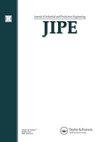Adaptive production control of two-product closed-loop supply chain dynamics under disruptions
IF 4.6
Q2 ENGINEERING, INDUSTRIAL
Journal of Industrial and Production Engineering
Pub Date : 2023-09-11
DOI:10.1080/21681015.2023.2256962
引用次数: 1
Abstract
ABSTRACTThis paper addresses the dynamics of a two-product closed-loop supply chain with realistic assumptions on production capacity constraints. The closed-loop supply chain is also subject to unpredictable disruptions, which lead to the non-stationarity of customer demand. The factory employs a production control policy to decide the product type to be processed. We propose a novel production control policy, named the Adaptive Hedging Corridor Policy, which makes decisions on production capacity based on the demand evolution. The proposed strategy is compared with well-known production control policies widely used in literature, such as DDMRP. Simulation results demonstrate the benefits of implementing an adaptive production control as it enables the closed-loop supply chain to enhance customer service level and bullwhip effect. Additionally, a sensitivity analysis is provided to assess the influence of experimental factors on the performance. The analysis highlights the significance of return flows and manufacturing operations for the closed-loop supply chain.KEYWORDS: supply chain dynamicsdisruptionchangeoverproduction controlbullwhipDDMRP Disclosure statementNo potential conflict of interest was reported by the author(s).Additional informationFundingThis work was supported by the Università di Catania [PIACERI 2020/22 – GOSPEL / 59722022261].Notes on contributorsRoberto Rosario CorsiniRoberto Rosario Corsini, PhD, is a postdoctoral researcher in Technology and Manufacturing Systems at the University of Catania (Italy). He holds a PhD in Complex Systems for Physical, Socio-economics, and Life Sciences and a Master’s degree in Management Engineering from the University of Catania. His professional background includes roles as Production Planner and Healthcare Management Engineer. His research activities deal with the application of AI frameworks, optimization techniques, and simulation models for Manufacturing Systems, Supply Chains, and Healthcare Systems中断下双产品闭环供应链动态的自适应生产控制
摘要本文在产能约束条件下研究了两产品闭环供应链的动力学问题。闭环供应链也会受到不可预测的中断,从而导致客户需求的非平稳性。工厂采用生产控制政策来决定要加工的产品类型。本文提出了一种新的生产控制策略——自适应套期保值走廊策略,该策略基于需求演化对生产能力进行决策。将该策略与文献中广泛使用的生产控制策略(如DDMRP)进行了比较。仿真结果表明,实施自适应生产控制可以提高闭环供应链的客户服务水平和牛鞭效应。此外,还提供了灵敏度分析,以评估实验因素对性能的影响。分析强调了回流和制造操作对闭环供应链的重要性。关键词:供应链动态中断变化生产过剩控制牛鞭ddmrp披露声明作者未报告潜在的利益冲突。本研究由卡塔尼亚大学支持[PIACERI 2020/22 - GOSPEL / 59722022261]。roberto Rosario Corsini,博士,意大利卡塔尼亚大学技术与制造系统博士后研究员。他拥有卡塔尼亚大学复杂系统物理、社会经济学和生命科学博士学位和管理工程硕士学位。他的专业背景包括生产计划员和医疗保健管理工程师。他的研究活动涉及制造系统、供应链和医疗保健系统的人工智能框架、优化技术和仿真模型的应用
本文章由计算机程序翻译,如有差异,请以英文原文为准。
求助全文
约1分钟内获得全文
求助全文
来源期刊

Journal of Industrial and Production Engineering
ENGINEERING, INDUSTRIAL-
CiteScore
7.50
自引率
6.70%
发文量
21
 求助内容:
求助内容: 应助结果提醒方式:
应助结果提醒方式:


